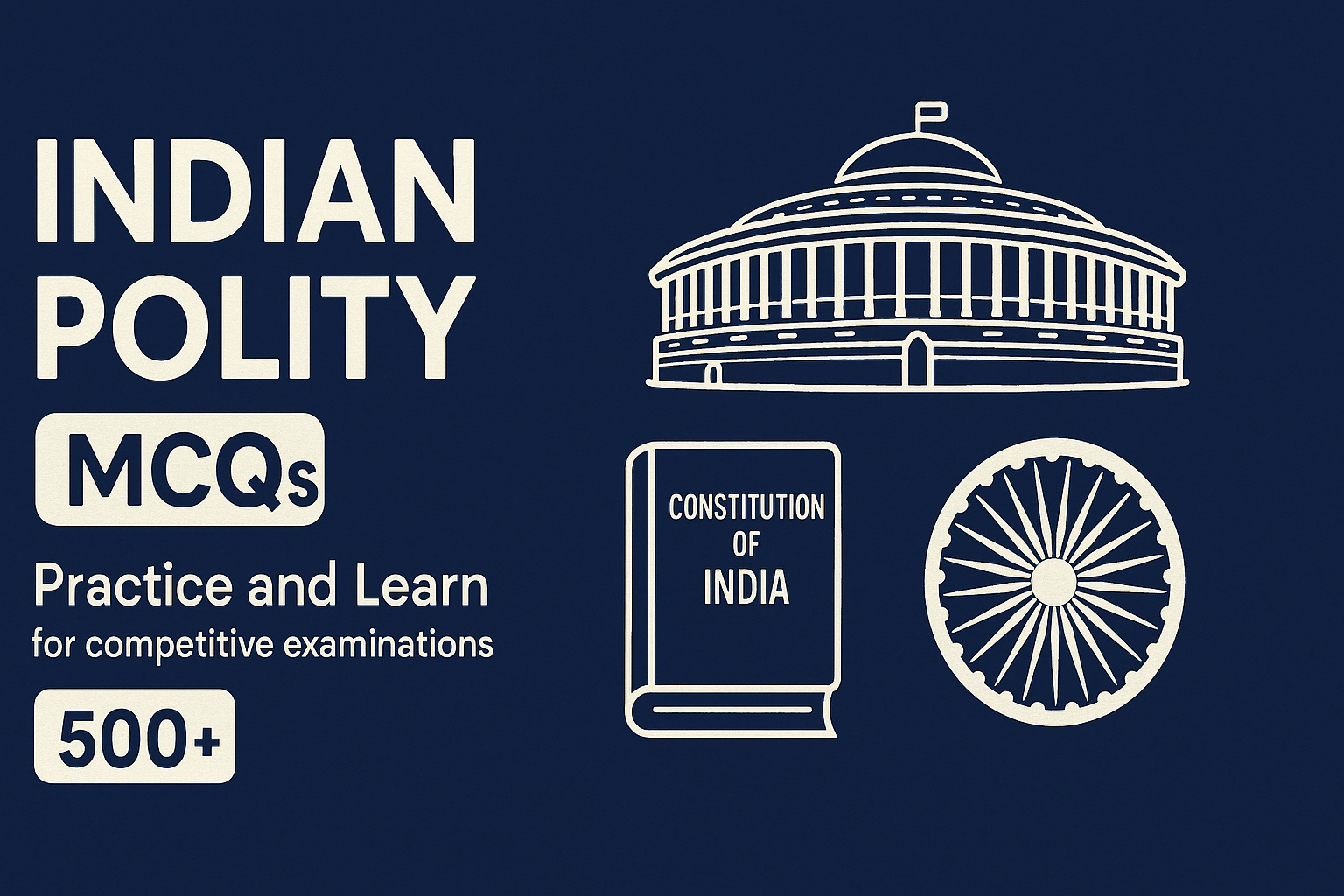
MCQ on Constitution of India and Indian Polity
Which one of the following Articles of the Constitution of India directs the state to organise and establish village Panchayats in India ?
Article 51(A) of part IVA of the constituton of India deals with :
Which one of the following rights is not a fundamental right ?
The ultimate power of alterration of the name of any state in India has been vested by the Constitution of India to the :
The Constitution (One hundred and First Amendment) Act, 2016, which introduced a national Goods and Service Tax (GST) in India, Is proposed to come into effect from:
Which article of the Constitution of India provides for the formation of Finance Commission ?
Provision for reservation of seats for the S/C and S/T in the Lok Sabha (House of People) has been laid down in :
The parliament of India may, by law, provide for the creation of All India Service if a resolution to that effect is passed by 2/3rd majority of the members present and voting in the:
The definition of 'Money Bill', in case of Parliament of India, has been given in the Constitution of India in:
How many members may be nominated by the President of India in the Council of States (Rajya Sabha) ?
